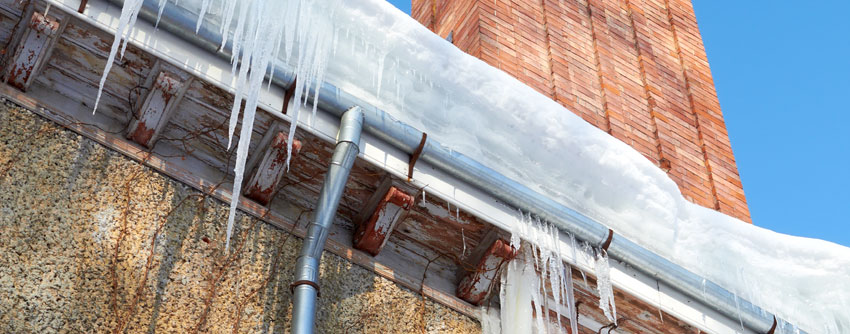January 5, 2018

With the subzero temperatures that NJ has been facing in the last few weeks, it is important to take precautions and know what to do in the event that your pipes freeze. Whether the pipes are made of copper, plastic, pvc, or plex material, any pipe can freeze depending on how cold the water inside it gets. When the water in the pipe freezes, it expands and pushes outward on the pipe walls, causing them to stretch and potentially burst. Burst pipes can be a very expensive problem for a homeowner, costing thousands and easily over $5000 according to the Insurance Institute for Business and Home Safety. Preventing pipes from freezing is much easier then dealing with the potential aftermath. So what can you do to prevent your pipes from freezing and what should you do if they burst?
Insulation & Heat Tape
The most vulnerable pipes are exposed and void of a source of heat, such as piping in a garage, attic, or basement. However, even pipes under cabinets or within walls can freeze. Luckily, pipe insulation or heat tape is very cheap and can be purchased at most local hardware stores. By wrapping vulnerable pipes, you are significantly reducing the chances of them freezing. It is also suggested to let the faucets drip slightly to prevent freezing.
Keep Your House Warm
When no one is home, make sure the thermostat is still set for a minimum temperature, even if it means a higher heating bill. The Red Cross suggests setting it for no colder than 55°F. When you are home, wear multiple layers around the house so that you will not be required to use as much heat. Use space heaters where needed, but only plug them in directly to the wall without any other electronics to prevent overheating.
Keep The Cold Out
Avoid leaving the garage open for long periods of time, especially if pipes run throughout it. Seal all cracks around windows and doors to prevent cool drafts from coming in. When leaving the house, open any cabinets that have piping underneath in order for them to stay warm.
While these are all great tips for preventing pipes freezing, what happens if it is too late? You can usually tell pipes are frozen when the water trickles out slowly.
Turn the faucets on, the water flow will help to slowly melt the ice. You can safely thaw frozen pipes with a blow dryer, space heater, or hot towel. Do not use a blow torch or propane heater, as they can cause fires. If the pipes do burst, locate the control valve for where water enters your home and turn it off as soon as possible. Once that is done, call a local plumber to replace any damaged pipes.
Check out our post that answers “will frozen pipes thaw on their own”?
Blog Posts
Enter your email address
Below to receive updates
And special offers!
Submit your questions about home performance and maintenance to your plumbing, heating and cooling systems for our monthly Ask Kevin article!
NJ PLUMBING LIC #8859
NJ HVAC-R LIC #9540
NJ CONTRACTOR REG #13VH01545000